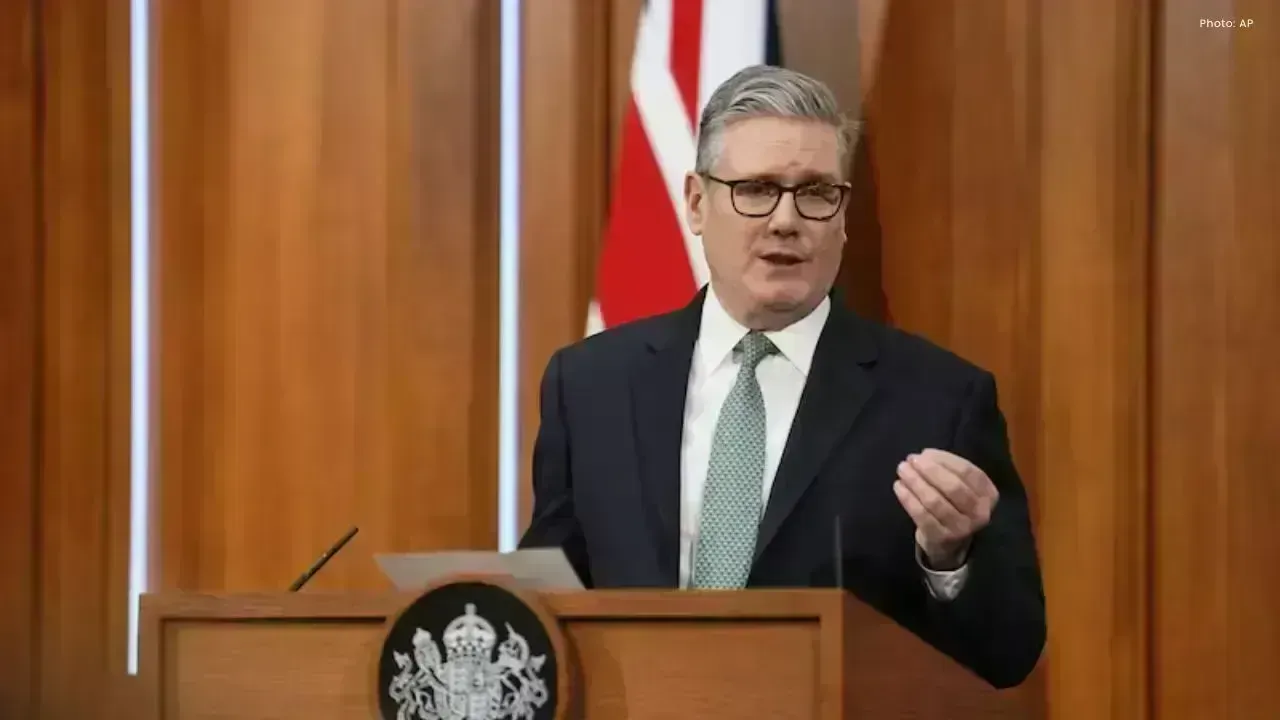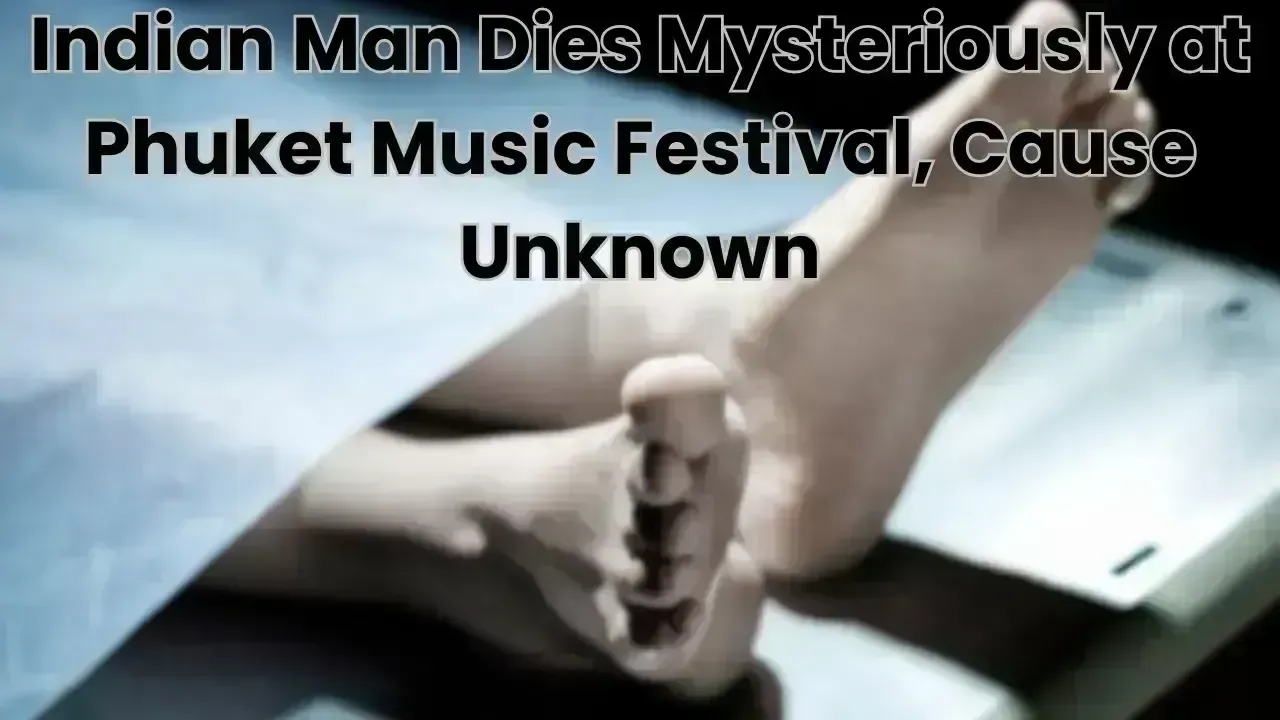You have not yet added any article to your bookmarks!

Join 10k+ people to get notified about new posts, news and tips.
Do not worry we don't spam!

Post by : Anis Farhan
Mental health is an essential component of overall well-being, yet it remains one of the most misunderstood aspects of health globally. Despite growing awareness, myths and misconceptions persist, often creating stigma and preventing individuals from seeking the support they need. From anxiety and depression to stress and bipolar disorders, mental health challenges affect millions of people worldwide, yet public understanding often falls short.
Addressing mental health myths is crucial not only for those experiencing psychological challenges but also for society at large. Misconceptions can influence public policy, healthcare practices, and interpersonal relationships. By debunking common myths, individuals can foster a more informed, compassionate, and supportive environment for themselves and others.
One of the most persistent myths is that mental health disorders are uncommon. In reality, mental health conditions are widespread. According to global statistics, nearly one in four people experiences some form of mental health issue in their lifetime. Disorders such as depression, anxiety, and post-traumatic stress affect millions, yet social stigma often leads individuals to believe they are alone.
Understanding the prevalence of mental health conditions is vital. Recognizing that these issues are common encourages individuals to seek help without shame and allows families and communities to provide better support.
Many people believe that mental illness reflects personal weakness or a lack of resilience. This misconception is not only false but harmful. Mental health disorders arise from a combination of genetic, biological, environmental, and social factors, not from a person’s character.
Seeking therapy or medication does not indicate weakness; it reflects a proactive approach to managing one’s health. Promoting the understanding that mental illness is a medical condition, not a moral failing, can reduce stigma and encourage more people to access care.
Another common misconception is that children are immune to mental health challenges. Children and adolescents are, in fact, susceptible to a wide range of conditions, including anxiety, depression, ADHD, and behavioral disorders. Early detection is crucial, as untreated conditions can impact academic performance, social development, and long-term well-being.
Parents, educators, and caregivers play an important role in identifying early signs, such as persistent sadness, irritability, changes in behavior, or social withdrawal. Awareness campaigns and school-based programs can help normalize conversations about mental health from a young age.
Some believe mental health conditions are permanent and untreatable. Modern psychiatry and psychology have shown that most mental health disorders can be effectively managed or even cured with appropriate interventions. Treatments may include therapy, medication, lifestyle modifications, and community support.
Cognitive-behavioral therapy, for example, has been proven effective in treating depression and anxiety, while medication can help stabilize conditions such as bipolar disorder or schizophrenia. Holistic approaches that combine therapy, mindfulness, exercise, and nutrition often yield the best outcomes.
Many people assume therapy is only necessary for extreme or debilitating mental health conditions. In reality, therapy can benefit anyone, whether they are facing significant distress or simply seeking personal growth. Counseling and psychological support can improve coping skills, enhance self-awareness, and provide strategies for managing everyday stress.
Therapy is not a sign of weakness; it is a proactive measure to maintain mental wellness, prevent crises, and enhance overall quality of life. Encouraging broader acceptance of therapy can reduce stigma and make mental health resources more accessible.
While concerns about psychiatric medications are common, most medications prescribed for mental health conditions are safe when used under professional supervision. Medications can significantly improve quality of life, enabling individuals to function better in daily activities and relationships.
It is important to distinguish between medications prescribed for mental health conditions and substances with addictive potential. Proper monitoring, education, and medical guidance ensure that psychiatric medications are safe and effective.
Many believe that mental illness is obvious through outward behavior or appearance. However, many individuals with mental health challenges appear outwardly healthy and functional, masking their struggles. Conditions like depression, anxiety, and PTSD can be internalized, making it harder for others to recognize the need for support.
Creating a culture of empathy and understanding, where people feel safe to share their struggles, is essential. Awareness campaigns and open conversations can help break the cycle of invisibility surrounding mental health.
A deeply harmful myth is the association of mental illness with violence. Studies consistently show that individuals with mental health disorders are more likely to be victims rather than perpetrators of violence. Stereotypes linking mental illness with danger increase stigma, discrimination, and social isolation.
Education and awareness are key to correcting misconceptions, reducing fear, and promoting social inclusion for people living with mental health conditions.
Many assume that recovery from mental illness means returning to a pre-illness state or being completely symptom-free. Recovery, however, is a personal and ongoing process focused on improving functioning, building resilience, and enhancing well-being.
Recovery-oriented care emphasizes hope, empowerment, and the ability to live a meaningful life, even if symptoms persist. Recognizing that recovery is unique to each individual encourages support and patience rather than unrealistic expectations.
Some fear that discussing mental health issues might worsen the condition. On the contrary, open conversations about mental health are beneficial. Sharing experiences, seeking guidance, and accessing support networks can alleviate stress, reduce isolation, and encourage timely interventions.
Encouraging dialogue in families, schools, workplaces, and communities fosters a culture of understanding and early intervention, which is critical for overall mental wellness.
Breaking mental health myths requires collective effort. Education, public campaigns, workplace initiatives, and school programs play a vital role in creating awareness. Media representation, informed discussions, and professional guidance also contribute to reducing stigma and promoting acceptance.
Supporting mental health is not limited to treatment. It includes fostering environments where individuals can thrive emotionally, socially, and psychologically. Simple steps such as active listening, empathy, and reducing judgment can have a profound impact.
Mental health is a vital aspect of human life that deserves understanding, compassion, and informed support. By debunking myths, society can empower individuals to seek help, enhance awareness, and promote emotional resilience.
Recognizing mental health as an integral part of overall well-being encourages early intervention, effective treatment, and stronger communities. Education, open dialogue, and empathy are essential tools in breaking the stigma surrounding mental health and enabling individuals to lead fulfilling lives.
This article is for informational purposes only and does not constitute medical advice. Individuals experiencing mental health concerns should consult qualified healthcare professionals for proper evaluation and treatment.










Indian Man Dies Mysteriously at Phuket Music Festival, Cause Unknown
remove news channal name give me rewrit in this news and full detaike news.news like orignal and tre

Manchester City Signs England Defender Marc Guehi From Crystal Palace
Manchester City signs 25-year-old England defender Marc Guehi from Crystal Palace for £20m, boosting

Japan Snap Election Sparks Bond Surge Amid Finance Concerns
Japan’s PM calls early election to back reflation plan. Bond yields hit decades-high as voters weigh

Trump Threatens Huge Tariffs on French Wine Over Peace Board Snub
Donald Trump warned of 200% tariffs on French wine after France rejected his Peace Board plan and mo

Prince Harry, Elton John Sue UK Tabloids Over Privacy Breaches
Prince Harry and Elton John accuse UK tabloids of phone hacking and stealing private info, calling i

Minnesota Man Says ICE Broke In, Handcuffed Him, Dragged Him Into Snow
A U.S. citizen in Minnesota says ICE officers broke down his door, handcuffed him in shorts and Croc